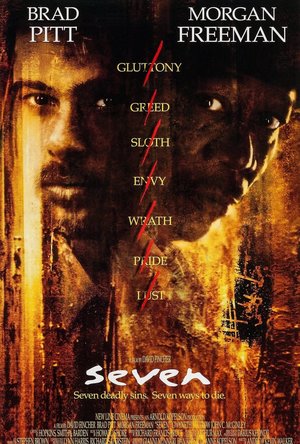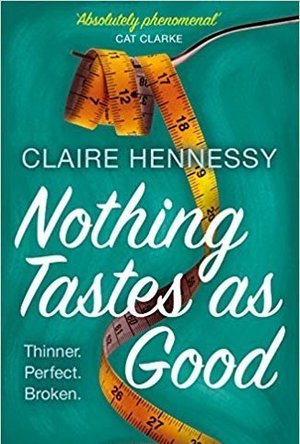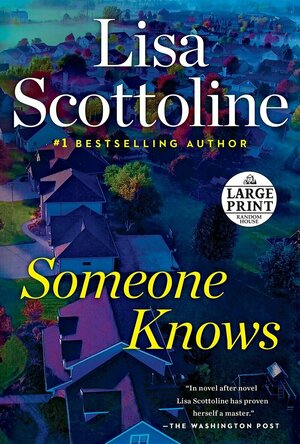
Audio Bible - Biblia Cornilescu (The Holy Bible in Romanian)
Book and Education
App
Aceasta este Biblia Audio in limba romana pentru tine de a asculta pe drum sau la domiciliu și să...

Pixaki – Pixel art studio
Productivity and Photo & Video
App
Pixaki is a powerful pixel art creation studio for iPad. It features many of the same features found...
Sarah (7800 KP) rated Seven (1995) in Movies
Nov 18, 2020
Se7en (1995) is directed by David Fincher and stars Brad Pitt and Morgan Freeman, as two detectives investigating a serial killer murdering people according to the seven deadly sins. From the very beginning we are plunged into the dark, gritty and nameless city home to almost retired Detective Somerset (Freeman) and new transfer Detective Mills (Pitt). It’s a grim and grey landscape with seemingly never ending rain and some rather dark and disturbing murders to match. The cinematography in this is superb. Fincher has created an almost film noir style crime thriller with an edgy yet stylish look and feel that completely encompasses the subject matter perfectly. It’s the bizarre incongruences, like Somerset using a typewriter while the rest of the precinct use computers, or the almost complete lack of cultural references, that give this a timeless stylised feel.
And the subject matter itself sounds, on the surface, like a by the book detective story. But Se7en is much more than your average run of the mill thriller. Yes the two lead characters Mills and Somerset are the typical cops you’d find in any police movie: headstrong impulsive young gun versus wizened sensible and rational senior. But the performances from Freeman and Pitt are top notch, I’d even go so far as saying career best, and this paired with a clever script and a fairly horrifying plot that being this into the territory of one of the best detective movies ever made. The amount of quotable lines in the movie is surprising – any crime film that can include the line “Just because the fucker’s got a library card doesn’t make him Yoda” is on to a winner.
The central focus on the seven deadly sins simply adds to the intrigue and general intelligence of this as well. Regardless of your beliefs or background, it’s unlikely that there are many who haven’t heard of the seven deadly sins, and using these to murder people in rather horrific ways really enhances the threat and tension. Especially as the killer begins to leave hidden clues and hints in the hopes the detectives are smart enough to find them, which takes us as the viewer along for a rather interesting ride.
This is, without a doubt, very dark and fairly graphic with it’s crime scene depictions but it never feels like it goes too far. It’s gruesome and bloody but without that feeling of horror and disgust that comes from films that go over the top (i.e. the Saw franchise). And it isn’t all doom and gloom either as Fincher easily works in some rather heartwarming scenes between Somerset, Mills and Mill’s wife Tracey (Gwyneth Paltrow), as well as some well placed laugh out loud moments that further enhance the realistic tone that the film is trying to betray.
However the standout and most memorable moment for Se7en comes during the last half an hour. For those that haven’t seen the film and don’t want spoilers, shame on you and you may want to read no further…. It’s the final scenes when John Doe hands himself in to the detectives and takes them on a road trip into the wilderness to reveal his last two victims. Kevin Spacey, who wasn’t credited in the films opening sequence, puts in a stellar performance as the unnerving and downright creepy serial killer, whose motives are deeply disturbing. You can’t take your eyes off him in this final act. Pair this with a (literally) killer twist that no-one, let alone the detectives who have been one step behind Doe this entire movie, sees coming and a chilling denouement that perfectly wraps up the final two sins.
Se7en is by far one of the best detective thrillers ever made. It’s a masterpiece in filmmaking from David Fincher and some of the best work Freeman, Spacey and Pitt have ever done. 25 years on and this film is a timeless classic.
Eleanor Luhar (47 KP) rated Nothing Tastes as Good in Books
Jun 24, 2019
So Annabel is dead. I'm studying The Lovely Bones at school so the whole beyond-death narration isn't that special to me now. But Hennessy does it pretty differently to Sebold.
We don't know much about Annabel, not at first. But we begin to learn about her while she helps her assigned "soul-in-need" - The Boss (definitely not God) has promised her a final communication with her family if she helps Julia. And this looks easy, at first - Julia is from Annabel's old school, with a loving family and good grades. Everything is fine, except she's fat. Annabel thinks this should be easy - after all, she's an expert in weight loss. She lost weight until she died.
But Annabel soon finds out that Julia's issues are a whole lot more complex than her weight. At first, losing weight helps. But then her old scars come back to haunt her, and Annabel realises that maybe losing weight isn't going to fix all her problems.
Aside from the obvious issue, this book does talk about a lot of important topics. It covers friendships and relationships, like most YA novels do, but it also combats ideas on feminism, affairs with older men, and people all having their own hidden demons.
At first, I wasn't keen on Annabel. I wanted to like her - I felt I should, because I could relate to her story so much. But she was a bitch. She wanted other people to be like her, and rather than encouraging recovery and health and happiness, she shared tipped on weight loss. It really did hurt to read. Her ideas on "perfection" and being weak for eating just really hit a nerve for me. Not because it was wrong (though I'd never encourage an eating disorder in someone else), but because it's exactly how I'd think about myself. Her behaviours, her worries, her anger - they were so real.
But Annabel, despite being dead, grows alongside Julia. Yes, she tells Julia to starve herself and run on an empty stomach and hate herself, but eventually she starts to feel for her. She wants Julia to combat her issues, to actually be happy. And she realises, despite having been so upset with her old friends for recovering, that maybe she wasted her life. Maybe she could have been something more, rather than striving to be less.
I found this really emotional. Annabel's love for her sister, the sister she neglected for years while she was focused on her goals, and the future she cut short. The way Julia's life changed when her passion for writing and journalism was overtaken by her obsession with food, calories, exercise. It's so real and so sad. And the ending isn't "happily ever after" - Annabel's still dead, Julia's in counselling - but it's real. It gives hope that things can change, that Julia can really achieve happiness.
At first, I didn't like this that much. I know Annabel is just a character, but I just didn't like her. She was one of those girls that makes anorexia sound like a choice, a lifestyle, and I hated that. But later she realises she is sick, and I actually felt sorry for her. I was sorry that she had been brainwashed by her illness into believing she was doing what was right.
The only reason I'm giving just 4.5 stars to this book is because Annabel was a bitch. Yes, she is a character, and yes, she grows considerably throughout the novel, but her encouragement of EDs just drove me insane. Personal pet peeve, I guess.
Heather Cranmer (2721 KP) rated Someone Knows in Books
Jun 26, 2019
Allie is a 15 year old overweight teenage girl. When popular and beautiful Sasha talks to her and invites her to hang out, she can't say no. When another teenager moves to the area and hangs out with them one night, things go lethally wrong. None of the teens confess to what actually happen, and no one gets in trouble. However, Allie continues to feel guilty over the next twenty years. This big secret has affected every aspect of Allie's life. When Allie finally wants to confess, things turn deadly.
The plot to Someone Knows sounded very similar to a book I had read previously. However, once I started reading it, I noticed how Lisa Scottoline gave her book a bunch of little twits and turns to keep it fresh. The plot seemed very realistic. I enjoyed how each chapter was told from each character's point of view. It was interesting to see the thought process behind each person. It was easy to lose myself in the story because of how realistic everything felt. Although I've never been as privileged financially as all the teens in the book, I felt like I was part of the group. There were no cliffhangers in this book either which was nice. While I did predict one plot twist, there was one that I didn't see coming! That was a nice curve ball!
I liked Allie very much. She reminded me a lot of myself at 15 years old. I definitely could see myself as Allie. In fact, my thought process was a lot like Allie's. I've never lost a sibling like Allie, but I was saddened by the death of her sister Jill, and I sympathized with Allie's mother when it came to depression. I do wish Allie would have clued her husband about what was going on because I felt bad for him since Allie was distant throughout a lot of the marriage. I get why she kept her secret to herself, but I still felt bad for Allie's and Larry's marriage. Sasha was an interesting character. I've definitely known a few Sashas in my life! Sasha was able to make any guy putty in her hands. I loved reading Sasha's point of view. Even though she could sometimes be a mean girl, I enjoyed her very much. It was interesting to read about David and learn of his struggle especially when it came to how his father was. David came across as a nice guy. Julian was a character who I would say was a mix of Sasha and David. He could be really nice and charming when he wanted to be, but he would say mean things about Allie to Sasha which wouldn't be very nice. However, I did admire how business oriented he was. I loved Kyle so much, and I hated how he was shunned because of something his father did. Kyle seemed like such a sweet boy who was dealt a tough hand through no fault of his own.
The pacing in Someone Knows seemed to be fairly slow throughout about 80 percent of the book especially during the first half or so. I know it was probably to set up the world building and backstory, but it was just so tedious. I would have liked a bit more action or had the backstory given to me during and after the main event. The pacing is what really let this book down in my opinion.
Trigger warnings include underage drinking, adult drinking, prescription pill abuse, death, talks of suicide, violence, and sexual situations (both underage and adult which aren't overly graphic).
Although the pacing for Someone Knows lets this book down, it's still an alright read. It does have some interesting characters with realistic problems that readers can identify with. I would recommend Someone Knows by Lisa Scottoline to those aged 17+ who are looking for an alright thriller to read.

PhotoMemes
Lifestyle and Photo & Video
App
PhotoMemes gives all your photos a new life: organized automatically into beautifully designed theme...

Easy To Use - Microsoft Word Edition
Productivity and Education
App
Microsoft Word is the World's Favourite Word Processing Software and is today used by millions...

Smoovie Stop Motion
Photo & Video and Education
App
"Smoovie will help you to create a lesson that your children will remember, whatever your subject." ...

Easy To Use! For Adobe Premiere Pro 2017
Photo & Video and Reference
App
Adobe Premiere Pro is a timeline-based video editing software application. It is part of the Adobe...

Home yoga practice
Health & Fitness and Lifestyle
App
What is preventing you from living your life to the fullest TODAY? Body aches? Stress? Your mood? ...


